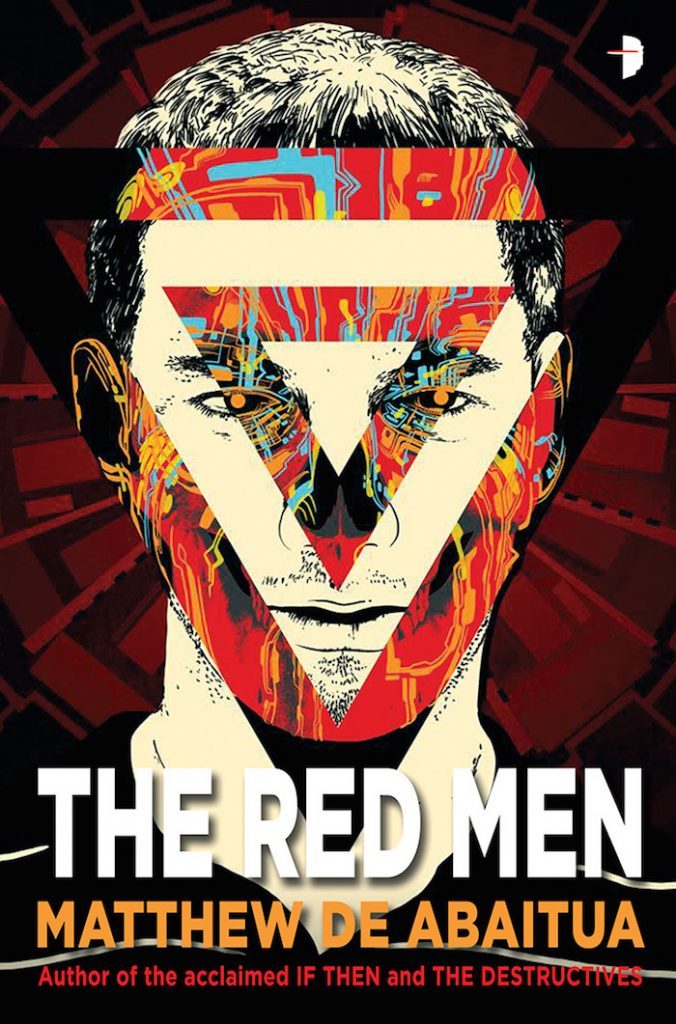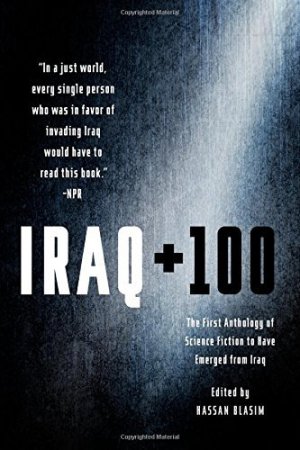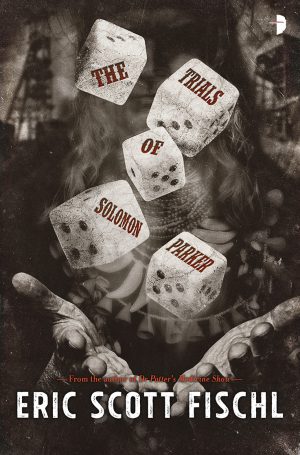Book Review: The Red Men by Matthew de Abaitua

About a third of the way through The Red Men, Matthew de Abaitua’s ravishing new-old (I’ll explain in a moment) cyberpunk nightmare, is very likely the creepiest scene I’ve ever encountered in literature. Not just in genre fiction. In literature. I’m not going to spoil it for you. You’ll know it when you hit it. And your brain will leap out of your skull and try to escape the building, flopping and squelching across the floor until it’s stuck hurling itself ineffectually against a door or gate or other obstacle. Help me. You’ll want to chase after it so you can read the rest of the book. Probably.
Book review: The Levee by Damon Norko
Everybody from J.G. Ballard to Paolo Bacigalupi to George Miller has tackled the “extreme drought” future, but few have taken it quite as far as Damon Norko has done in his latest novella, The Levee. The world of The Levee is one in which not only have the rivers and lakes dried up, but so have the oceans. Barsoom-like*, humanity now dwells on the dead sea bottoms, and water, pumped from deep under those bottoms, has become so scarce and precious that it is used as currency, making for a weird and cumbersome economic system that I’ll expand upon later in this review.
Book Review: Iraq + 100: Stories from a Century After the Invasion

Our world is dark and full of terrors. I won’t bother enumerating them here. Either you already know them or you’re already hiding in the peace and safety of your own personal new dark age. And anyway, it all will have changed utterly by the time we hit publish on this review. Bummed out? Now think about the people of Iraq, the cradle of civilization that we’re only the most recent society to have somehow decided would be better off blown to splinters. As exiled Iraqi artist Hassan Blasim reminds us in the introduction to Iraq + 100, the ordinary people of Iraq haven’t known peace in anyone’s lifetime, and that’s just for starters. But some people have gotten out, including some amazing artists, including the aforementioned Blasim, primarily a filmmaker, but also a writer and anthologist, who, from faraway Finland saw that if there was one thing his beleaguered countrymen (and the rest of us) needed these days, it’s some speculative fiction, some stories created under the assumption that Iraq (and the rest of us) will still be around in 100 years. And thus was born Iraq + 100, an anthology of fantastic, disturbing, wondrous and deeply historically grounded stories by authors and translators who now live all over the world but once called Iraq home.
Book Review: The Trials of Solomon Parker by Eric Scott Fischl

Eric Scott Fischl grabbed my attention in a big way recently with his harrowing debut novel Doctor Potter’s Medicine Show, and only tightened his grip on it with this follow-up. But once again, caveat lector. Just as its predecessor held considerable peril for sympathetic vomiters and those triggered by sexual violence, The Trials of Solomon Parker starts off with scenes of underground mine disaster so well-researched and vividly described that the claustrophobic or those living with PTSD might find it rough going. And then there’s that litany of other horrors, including domestic violence, that follows. Eek. Those who tough it out, though, have a reward in store for them that might even seem to carry a whiff of Kurt Vonnegut, or perhaps even Gene Wolfe, to it. For, like its predecessor, this is not merely a quality work of historical fiction. There’s Time Travel as well as copper in them thar hills!
Book Review: Doctor Potter's Medicine Show by Eric Scott Fischl

The Women’s Christian Temperance Union, a real-life organization that lends a bit of background color to Doctor Potter’s Medicine Show, might have found this novel an effective bit of ammo in their arsenal against the evils of Demon Rum, Wicked Whiskey, Sinful Ginful, etc. They would probably have found it an appalling actual read, but it might have served better than their marching around with signs and their uplifting sermons and their heartfelt testimonials ever did. The descriptions of the unpleasantness of actually being drunk, of addiction, of the consequences of a drinking binge (both social and biological), and of just how nasty a bottle of rotgut can taste and smell, will surely make many a reader look askance at the next cocktail proffered him or her.* I doubt, though, that Eric Scott Fischl wrote with this aim in mind as he brought these desperate characters together in this diabolical plot. After all, alcohol is not anyone’s biggest problem in his version of Oregon and Idaho in the late 1870s.
Book Review: A Passport to a Nation of Talking Slugs by Andrew Kozma

In all honesty, this should really be called a booklet review, or, to be fancier, a chapbook review, because this is a slight little thing that a person could easily read all the way through while waiting in line at the DMV, still having time to start on another short story collection or anthology before her number was called. Which is to say that A Passport to a Nation of Talking Slugs could actually fit into a passport, as its amusingly apt cover might suggest. But though it be little, it is fierce, is this collection of Kafka-meets-Ionesco-as-Introduced-by-Borges bits. With just four wee stories, Kozma manages to sneak a few emotional wallops among what seems like whimsy, and, to readers like me who have been trained on Gene Wolfe for so long, he’s managed to suggest a degree of intertwined meaning that he might not have intended but feels like it’s there.

